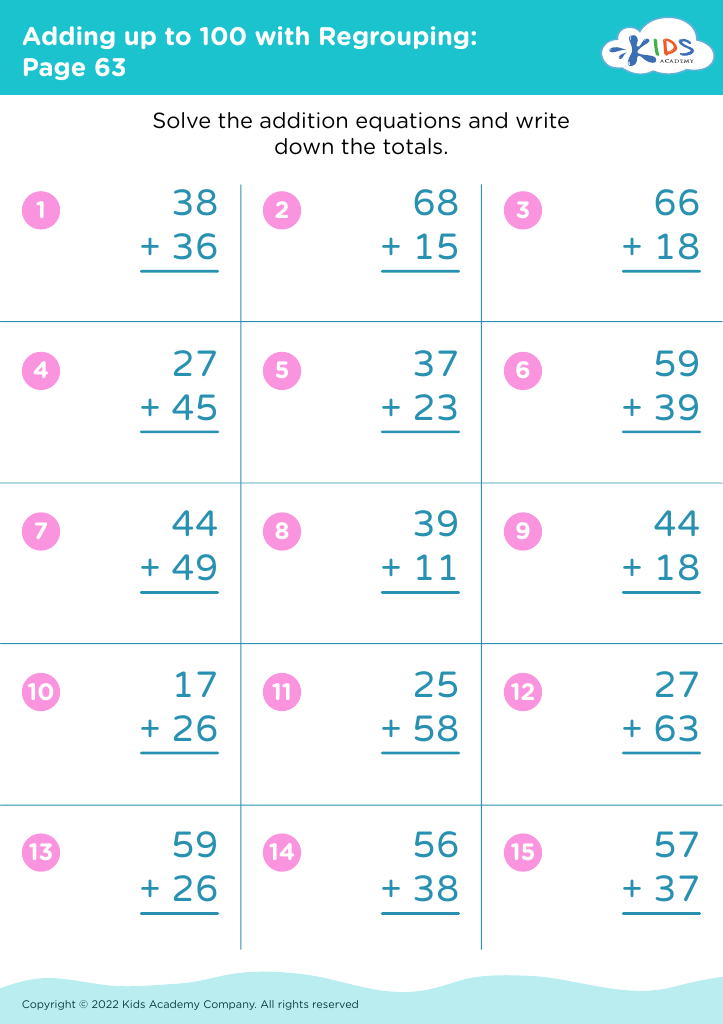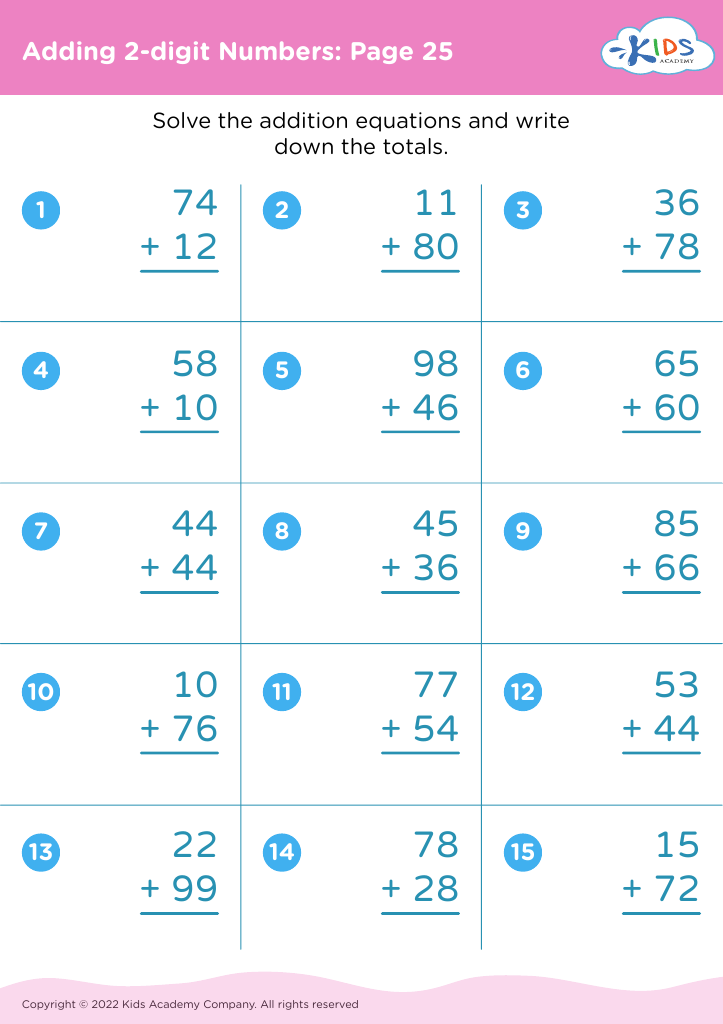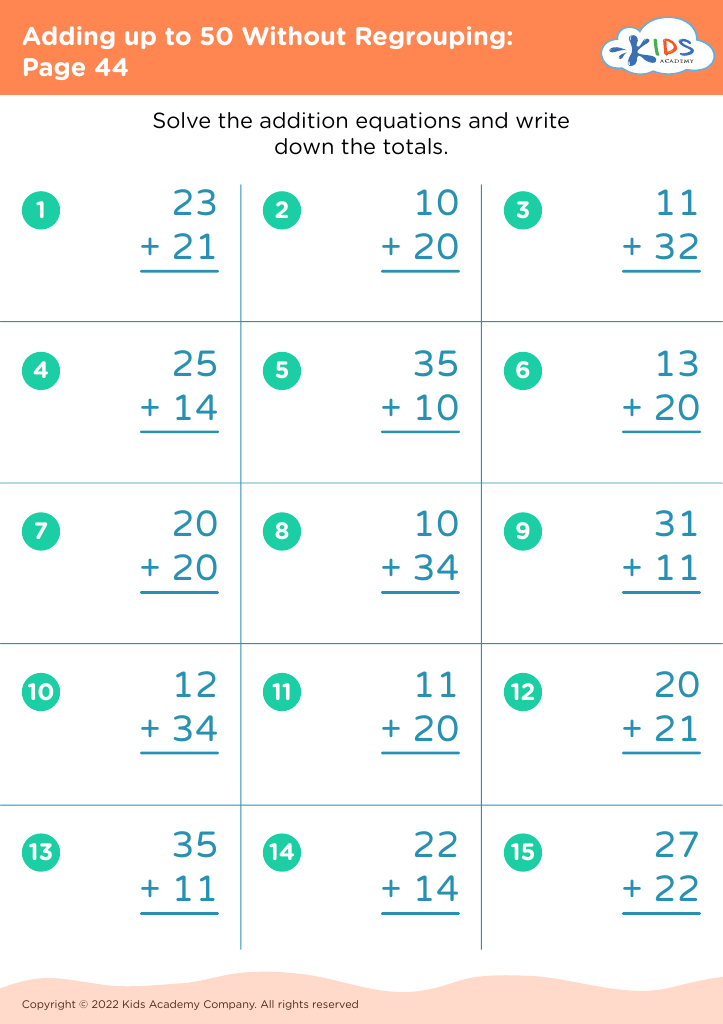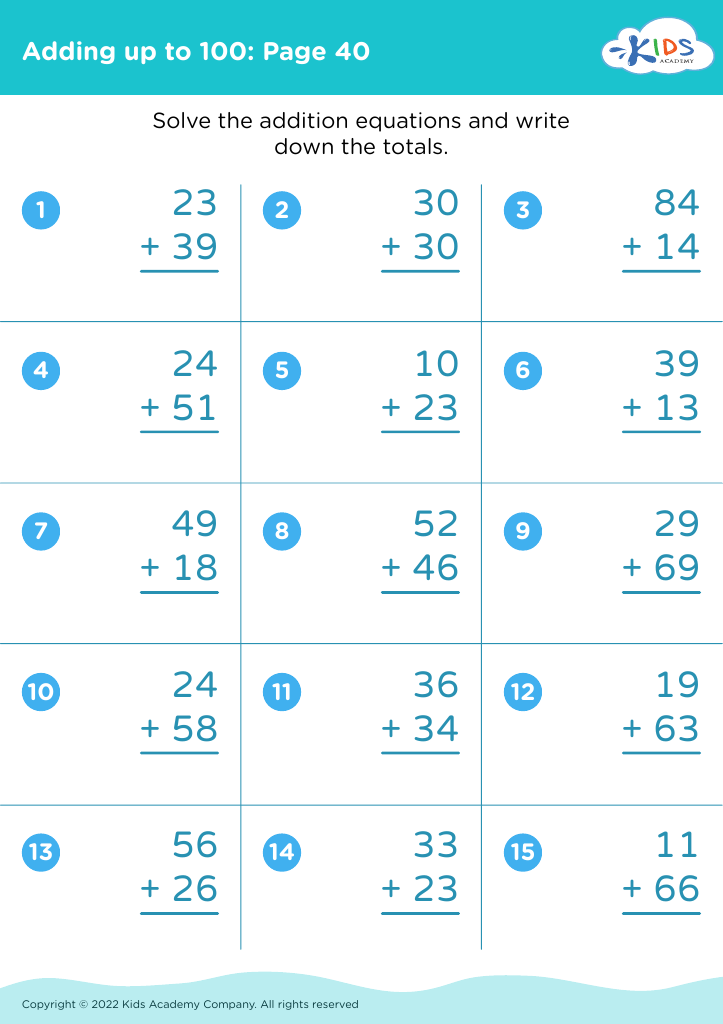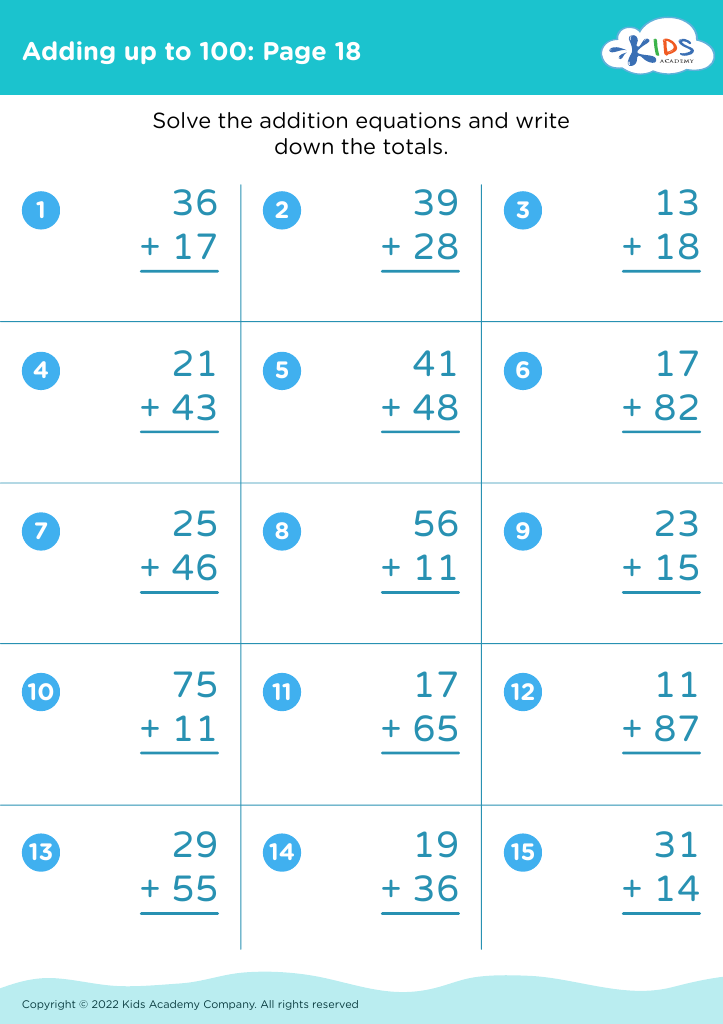Enhance number recognition Addition & Subtraction Worksheets for Ages 4-7
17 filtered results
-
From - To
Boost your child's math skills with our engaging Addition & Subtraction Worksheets designed specifically for ages 4-7! These interactive worksheets focus on enhancing number recognition while making learning fun and effective. Your little learners will explore basic addition and subtraction concepts through colorful visuals and progressively challenging tasks. Each activity encourages critical thinking and problem-solving, fostering a solid number sense. Whether at home or in the classroom, our resources offer the perfect way to support your child's math journey. Equip them with essential skills for a lifetime of learning and confidence in mathematics! Download your worksheets today and start the adventure!
Enhancing number recognition, along with addition and subtraction skills, for children aged 4-7 is crucial for several reasons. During these formative years, children build the foundational skills necessary for later math competence. Number recognition lays the groundwork for understanding numerical concepts, enabling students to identify and manipulate numbers with confidence. Mastering basic addition and subtraction is essential as it serves not only as building blocks for more complex mathematics but also for real-life problem-solving situations, such as sharing objects or counting items.
Since early math skills are highly predictive of future academic success, ensuring that children grasp these concepts can reduce the risk of struggles in later grades. Furthermore, these skills promote logical thinking and reasoning, aiding cognitive development.
Moreover, when parents and teachers emphasize number recognition alongside addition and subtraction, they encourage a positive attitude towards math in young learners. This early enthusiasm can cultivate a lifelong love for the subject. Activities that promote these skills can be engaging and interactive, making learning fun and memorable. Ultimately, investing in these early mathematical competencies fosters a strong educational foundation, empowering children as they progress through their academic journeys.



